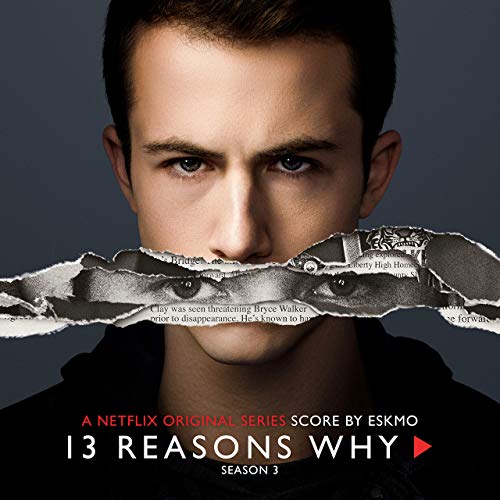13 Reasons why you should and shouldn’t watch “13 Reasons Why”

Promotional Image
September 6, 2019
Some reasons you should watch:
1. The realistic portrayals of mental health struggles.
Depression, PTSD, anxiety, and suicide are some issues that the characters deal with on a daily basis. Some get the help they need while others struggle alone. It’s good to see that these issues exist for teens and that those who struggle are not alone.
2. It shows the importance of talking about sexual harassment and assault.
Along with the first two seasons, season three focuses on the prevalence of sexual harassment and assault. This season widens the lens, revealing many more characters who have survived a sexual assault.
3. Many characters illustrate empathy.
Amid all of the harsh realities the characters face, there are many examples of kindness and empathy. The main characters were very connected and they genuinely care for and look out for each other.
4. It promotes trusting your friends.
Viewers see many of the characters trusting each other with very personal problems and issues that they face. We see how opening up to others can help you through tough times.
5. It illustrates diverse cultures and situations.
New narrator of season three, Ani Achola, has moved around a lot. She was born in Kenya and moved to the UK at 4-years old. She brings with her cultural challenges- specifically a strict mother who doesn’t approve of any socializing. Openly gay Tony Padilla is forced to deal with the reality of his family’s deportation to Mexico. Monty De La Cruz struggles with his sexuality and domestic abuse at the hands of his father.
6. The important conversation about bullying continues.
The season continues to bring awareness to seriously harmful effects of bullying and reminds us to be kind to one another and to speak up when we see signs of bullying.
And now some reasons why you shouldn’t watch…
7. The show includes some pretty unrealistic and exaggerated scenarios.
The show tends to be a little dramatic and to make a better story. It can be over the top, sensational and gratuitous at times though…just remember the show is not a documentary, it’s fiction.
8. It normalizes owning guns.
Throughout the show, many of the teens either own a gun or have access to guns. While this may be a reality for some, it seems pretty far-fetched.
9. It stereotypes male student athletes.
The show’s constant portrayal and discussion of members of the football team as rapists is a major stereotype and generalization that is harmful.
10. It portrays lying to a police officer as a good thing.
The season ends with the group agreeing to lie to the police. The show makes it seem fine because they did it for the “right reasons,” but it’s a harmful message that’s being sent.
11. It regularly shows ways you should not handle situations.
Although the show emphasizes the importance of getting help if you need it, it also shows ways you shouldn’t handle situations like lying, taking drugs, not trusting adults, taking the law into your own hands, etc.
12. The show often makes adults out to be untrustworthy.
Throughout the show, the teens regularly hide things from their parents because they don’t trust them enough to share.
13. It glorifies drug and alcohol use.
It’s irresponsible to show so much drug and alcohol use without emphasizing the harmful effects of steroids, heroin, marijuana and alcohol.
